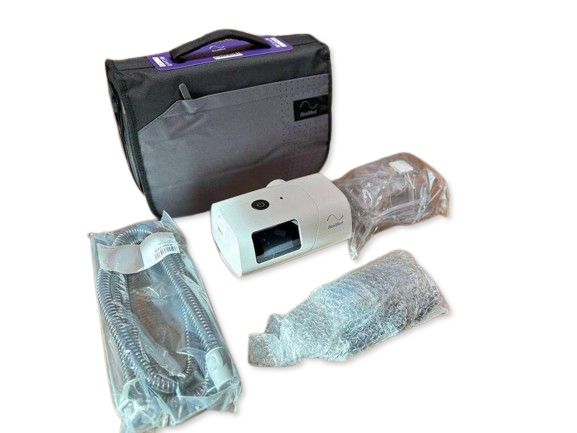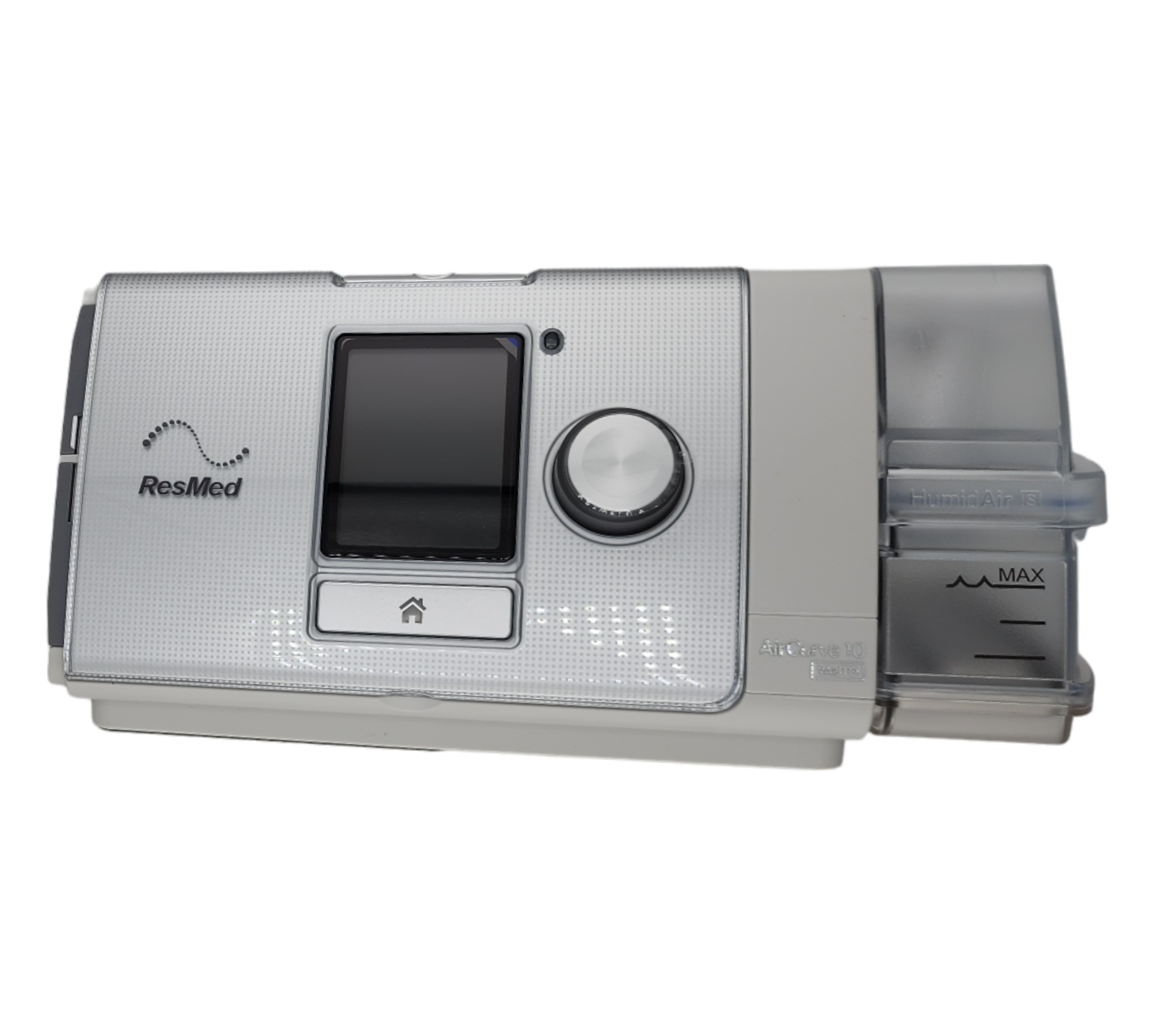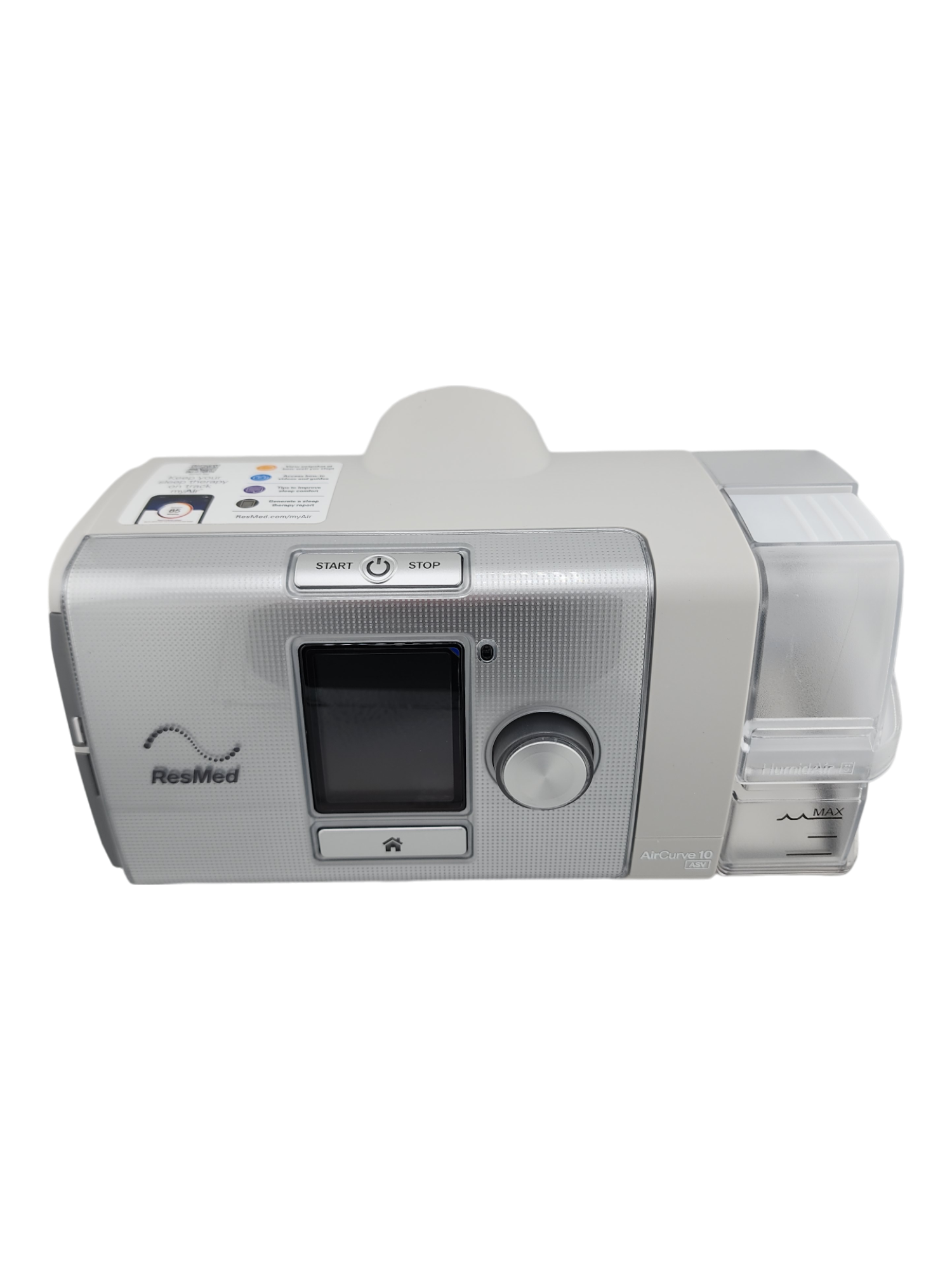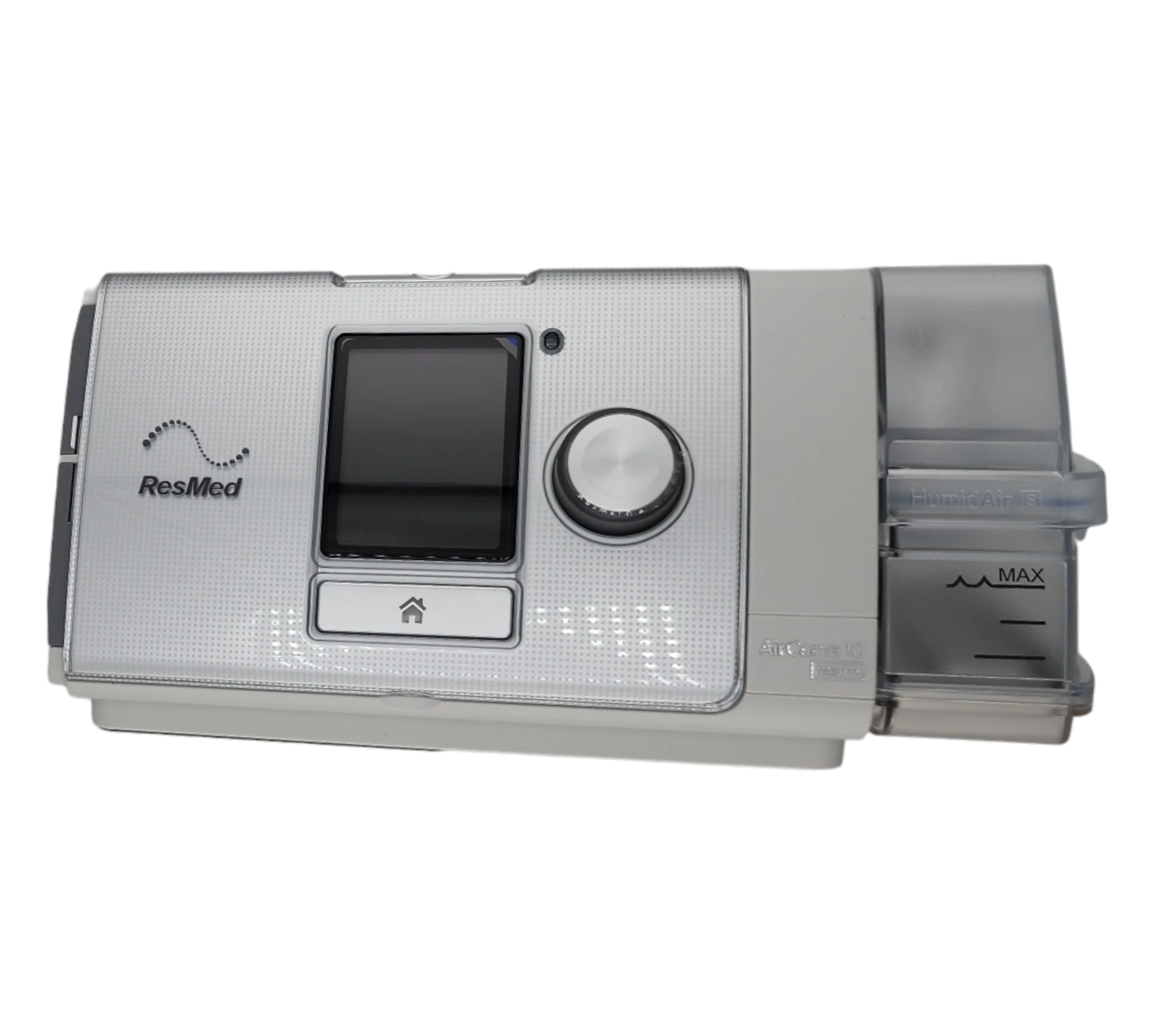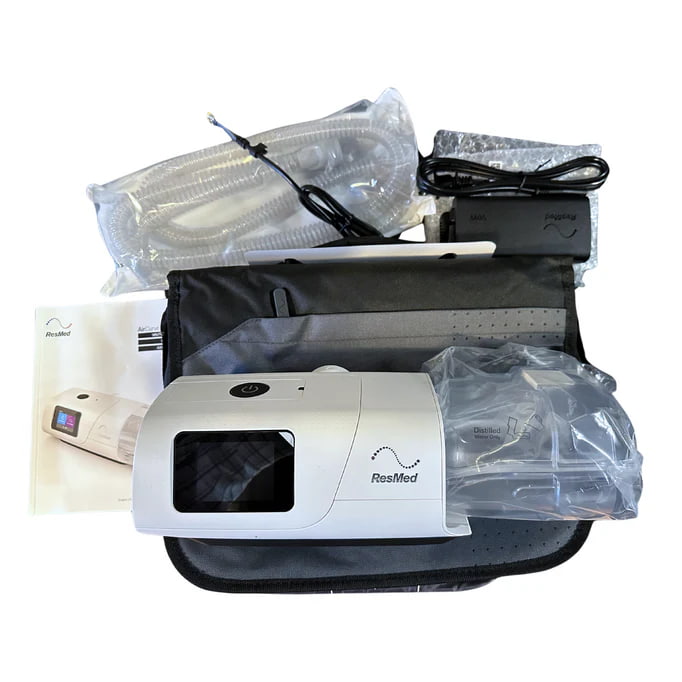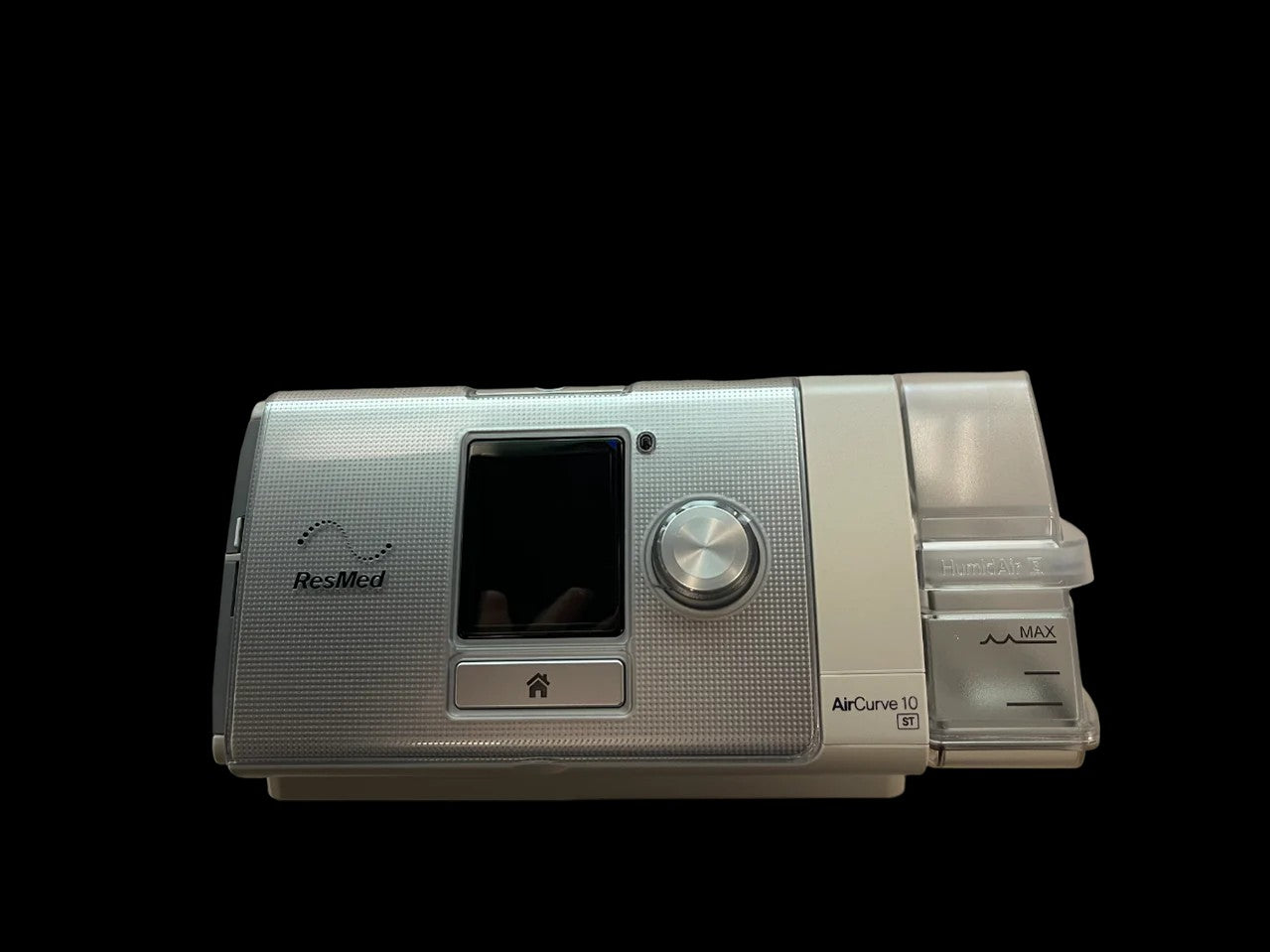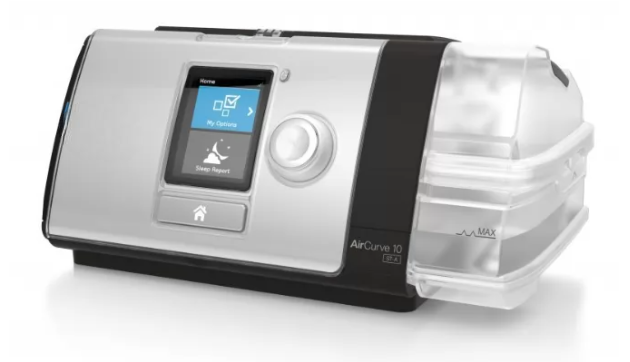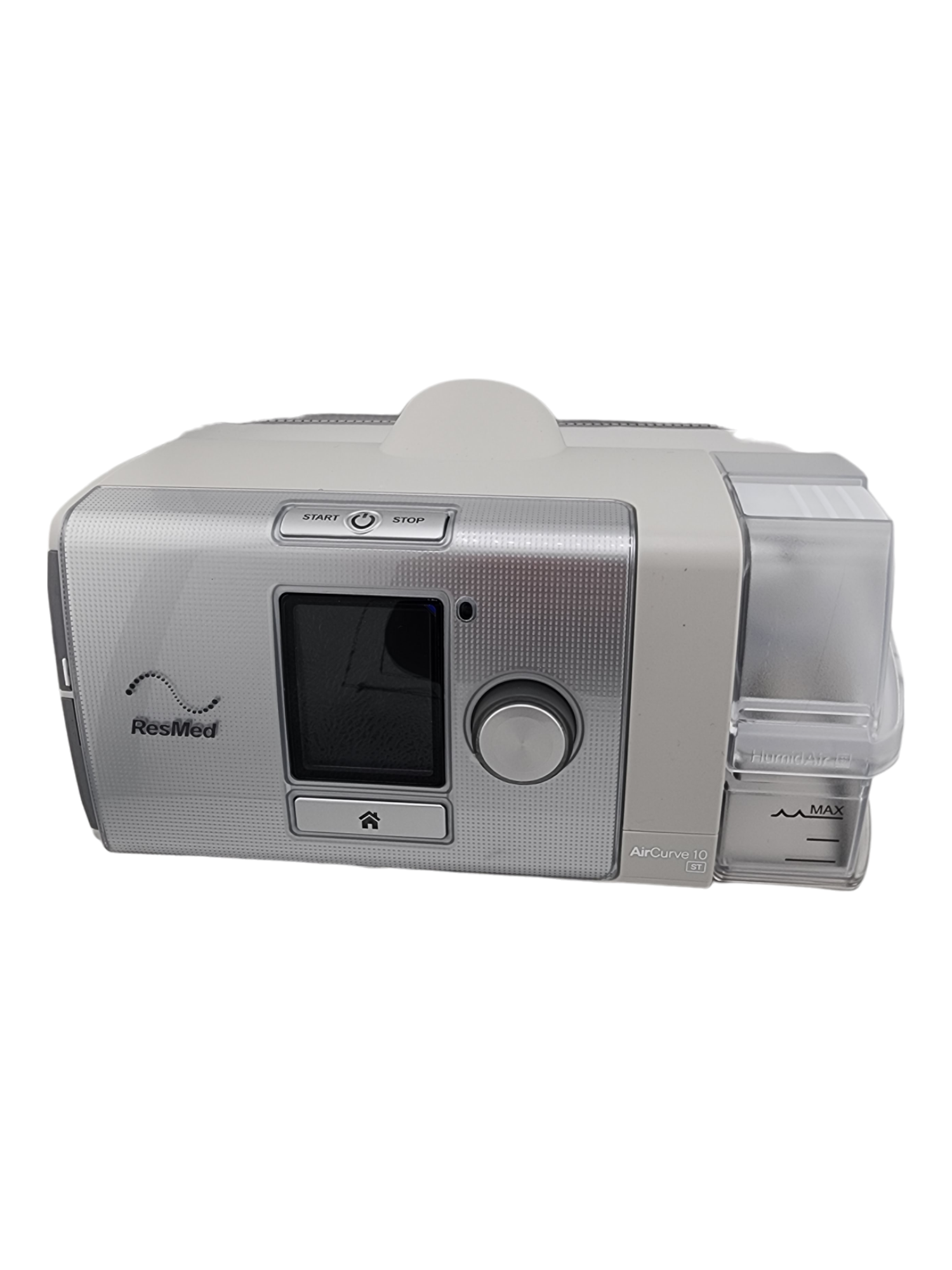Shop BiPAP & VPAP Machines for Better Sleep
BiPAP | VPAP Machine
Discover our collection of BiPAP and VPAP machines offering advanced respiratory support for individuals with specific sleep apnea and breathing conditions, featuring cutting-edge bilevel positive airway pressure (BiPAP) and variable positive airway pressure (VPAP) devices designed to deliver personalized therapy with adjustable pressure settings to accommodate individual breathing patterns, providing enhanced pressure support, advanced comfort features, and integrated humidification for... Read More
Shop Our BiPAP/VPAP Machines For Sale At Best Prices
Whether you're seeking relief from sleep apnea or managing respiratory conditions, our selection of top-quality devices ensures you receive the support you deserve.
What is a BiPAP/VPAP Machine?
Unlike CPAP (Continuous Positive Airway Pressure) machines that deliver a constant level of air pressure, BiPAP machines allow your lungs to remain inflated during sleep, thus offering you a restful sleep. Usually, the ResMed brand uses terms such as VPAP for their BiPAP machines. BiPAP and VPAP (Variable Positive Airway Pressure) machines provide bilevel therapy, meaning they deliver two distinct pressure settings:
- Inspiratory Positive Airway Pressure (IPAP): This higher pressure assists with inhaling, keeping the airway open during this crucial phase.
- Expiratory Positive Airway Pressure (EPAP): This lower pressure allows for easier exhalation, mimicking a more natural breathing pattern.
Proper breathing is essential for maintaining optimal health, and BiPAP machines can help individuals regulate their breath patterns to ensure adequate airflow and oxygenation during sleep. When deciding between CPAP or auto BiPAP, individuals should consider factors such as their breathing patterns, comfort preferences, and the level of pressure support required for effective therapy.
With advancements in technology, there are now many BiPAP machines available on the market, each offering unique features and capabilities to meet the diverse needs of individuals with sleep apnea.
How to Choose the Right Bipap/VPap Device?
Choosing the right Bipap/VPap device is crucial for effective respiratory therapy. Consider factors such as:
- Pressure Settings: Look for devices with adjustable pressure settings to match your prescribed therapy.
- Mask Compatibility: Ensure compatibility with a variety of masks for a comfortable fit.
- Portability: If you're on the go, consider portable options for travel convenience.
- Advanced Features: Explore devices with additional features like humidification, data tracking, and wireless connectivity for a comprehensive respiratory care solution. Humidification helps alleviate dryness and discomfort in the nose and throat.
Humidification is important when using a BiPAP machine because BiPAP pressure settings can be quite high. Some machines maintain the humidity rate and air temperature at a fixed point.
Why Choose a BiPAP Machine?
A BiPAP machine becomes a crucial consideration, especially when prescribed by healthcare providers to address specific respiratory challenges. Here are scenarios where opting for a BiPAP machine might be the optimal choice:
- Chronic Obstructive Pulmonary Disorder (COPD): BiPAP machines prove highly effective in managing respiratory conditions like COPD, providing tailored pressure support for improved breathing.
- Obstructive, Central, or Complex Sleep Apnea: Individuals with diverse sleep apnea types, including obstructive, central, or complex, find BiPAP machines valuable in delivering the necessary respiratory assistance.
- Obesity Hypoventilation Syndrome (OHS): BiPAP therapy is often recommended for individuals dealing with OHS, ensuring adequate ventilation and promoting better respiratory function.
- Heavily Impaired Natural Breathing: When natural breathing is significantly impaired, a BiPAP machine offers the flexibility to adjust pressure levels during inhalation and exhalation, enhancing overall respiratory support.
- Pneumonia: Patients recovering from pneumonia may benefit from the targeted pressure support provided by a BiPAP machine, aiding in respiratory recovery.
- Poor Breathing Post-Operation: Following surgical procedures, individuals experiencing difficulty in breathing can find relief through the customizable pressure settings of a BiPAP machine.
It's important to note that if persistent breathing challenges or difficulty swallowing are prevalent, a healthcare provider may need to explore more invasive ventilation options. Ultimately, the decision to choose a BiPAP machine is driven by the specific respiratory needs identified by medical professionals, ensuring a tailored and effective solution for improved respiratory well-being.
Key Features of BiPAP/VPAP Machines
Following are some of the machine features you should expect to ensure you get the best return on your investment:
1. Bilevel Support
BiPAP and VPAP machines provide two distinct pressure levels, one for inhalation and a lower one for exhalation. This bilevel machine support helps in accommodating the patient's breathing pattern and enhances comfort.
2. Pressure Adjustability
These machines offer customizable pressure settings, allowing healthcare providers to tailor the therapy to individual patient needs. The ability to adjust pressure ensures optimal treatment for various respiratory conditions. Some bi-level machines also monitor the amount of air the patient inhales and exhales and accordingly adjusts the pressure. Humidifiers may be integrated into BiPAP machines to alleviate dryness and enhance comfort during therapy, ensuring a more pleasant breathing experience.
3. Advanced Data Tracking
Many bi-level machines also monitor and track your data. BiPAP/VPAP machines come equipped with advanced data tracking capabilities. This includes recording information such as apnea events, leak rates, and usage hours. Healthcare professionals can use this data to monitor patient progress and make necessary adjustments to the treatment plan.
4. Comfort Features
Enhanced comfort features, such as ramp-up functionality and mask pressure relief, contribute to a smoother transition into therapy. The ramp-up feature allows the machine to start with lower pressures, gradually increasing to prescribed levels, promoting a more comfortable experience.
5. Mask Compatibility
These machines are designed to work with a variety of masks, including nasal masks, full-face masks, and nasal pillows. This versatility allows patients to choose the mask style that best suits their preferences and ensures an effective seal for therapy.
6. Quiet Operation
Modern BiPAP/VPAP machines are designed to operate quietly, minimizing disturbances during sleep. This is crucial for patient compliance, as a quiet machine promotes a restful sleeping environment.
7. Smart Connectivity
Some machines come with smart connectivity features, allowing patients and healthcare providers to monitor therapy remotely. This can include wireless data transmission, mobile apps, and compatibility with data management systems.
8. Battery Options
For added flexibility, many BiPAP/VPAP machines offer battery options. This is particularly useful for patients who may need to use the machine during travel or in locations where a stable power source is not readily available.
9. User-Friendly Interface
The interface of these machines is designed to be user-friendly, with intuitive controls and easy-to-read displays. This simplifies the operation of the device for both patients and caregivers.
10. Compact and Portable
Many BiPAP/VPAP machines are compact and portable, making them suitable for home use as well as travel. The portability factor adds convenience for patients who need to continue their therapy while on the go.
BiPAP vs. CPAP
| Aspect | CPAP | BiPAP |
|---|---|---|
| Pressure Delivery | Delivers constant air pressure throughout the breathing cycle | Delivers two distinct levels of pressure: higher during inhalation (IPAP) and lower during exhalation (EPAP) |
| Therapy Focus | Primarily used for obstructive sleep apnea (OSA) | Used for OSA, central sleep apnea, COPD, and other respiratory conditions |
| Comfort | May feel less comfortable due to continuous pressure | Offers enhanced comfort with bilevel pressure support |
| Applications | Best suited for uncomplicated sleep apnea cases | Suitable for a wide range of respiratory issues, including those needing variable pressure support |
| Adaptability | Less adaptable to changing breathing patterns | Adapts well to changing breathing patterns, offering more flexibility |
Top-Rated BiPAP/VPAP Machines Available on Our Platform
Explore our top-rated BiPAP/VPAP machines, each designed to deliver superior respiratory support. Whether you're managing sleep apnea, COPD, or other respiratory conditions, our selection ensures you find the perfect fit for your needs.
FAQs
Our committed team is available to support you through every step of your treatment journey.



